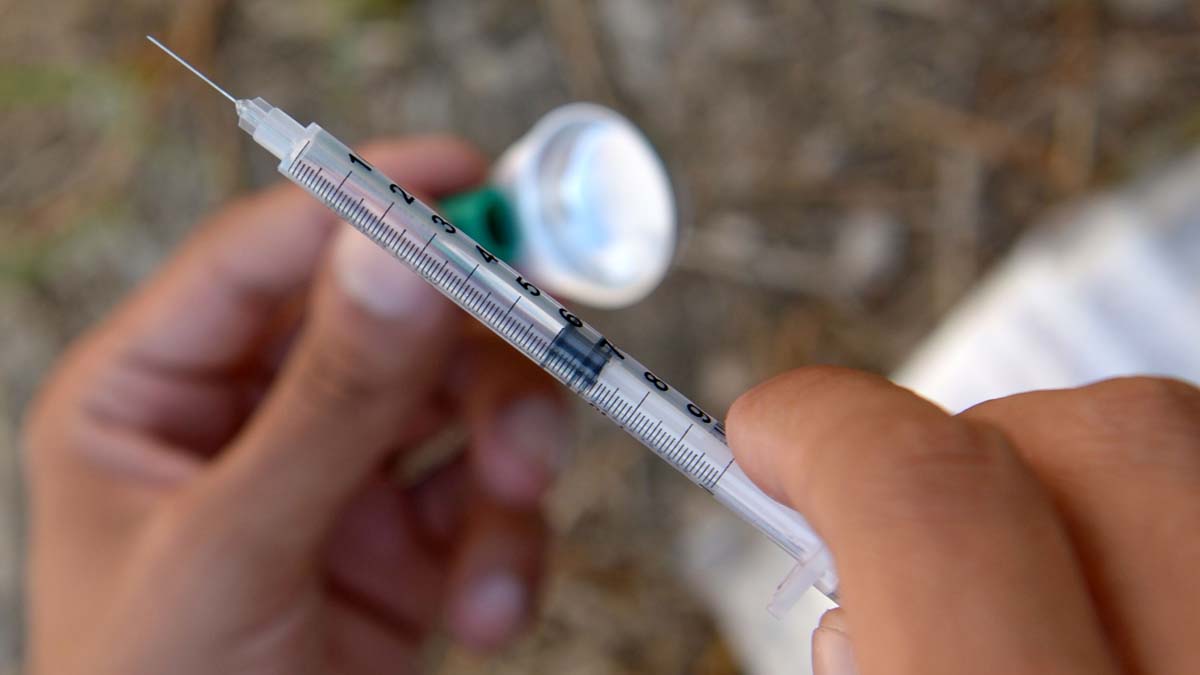Is this the secret of eternal life?
Russian scientist injects himself with 3.5 million-year-old bacteria in pursuit of youth

A free daily email with the biggest news stories of the day – and the best features from TheWeek.com
You are now subscribed
Your newsletter sign-up was successful
What is the key to eternal youth? Russian scientist Anatoli Brouchkov thinks he has found the answer by injecting himself with 3.5-million-year-old bacteria.
Brouchkov, head of the Geocryology Department at Moscow State University, claims to have discovered a bacteria that has survived in the permafrost for millions of years. Following tests on mice, fruit flies and human blood cells, the 58-year-old offered himself up as a human guinea pig and the results, he says, are remarkable.
Speaking to the Siberian Times, Brouchkov says he has started to work longer, hasn't had the flu for the past two years and feels healthier and stronger after injecting himself with the 'elixir of life'.
The Week
Escape your echo chamber. Get the facts behind the news, plus analysis from multiple perspectives.

Sign up for The Week's Free Newsletters
From our morning news briefing to a weekly Good News Newsletter, get the best of The Week delivered directly to your inbox.
From our morning news briefing to a weekly Good News Newsletter, get the best of The Week delivered directly to your inbox.
While acknowledging that further tests are needed to ascertain the true effects of Bacillus F bacteria on the human body, Brouchkov defended his claims: "It wasn't quite a scientific experiment so I cannot professionally describe the effect but the results for me were quite clear. We have to work out how this bacteria prevents ageing. What is keeping that mechanism alive? And how we can use it for our own benefits?"
Brouchkov cites the Yakut people, who have been exposed to the thawing permafrost over time, living longer and healthier lives, as proof that the bacteria works.
First discovered in 2009, the regenerative effects of bacteria are potentially a huge money-making opportunity, says the Daily Telegraph, while it may also hold the key to fertility.
Tests with mice have found the bacteria allows older females to reproduce long after they have been declared infertile.
A free daily email with the biggest news stories of the day – and the best features from TheWeek.com
-
 What is the endgame in the DHS shutdown?
What is the endgame in the DHS shutdown?Today’s Big Question Democrats want to rein in ICE’s immigration crackdown
-
 ‘Poor time management isn’t just an inconvenience’
‘Poor time management isn’t just an inconvenience’Instant Opinion Opinion, comment and editorials of the day
-
 Bad Bunny’s Super Bowl: A win for unity
Bad Bunny’s Super Bowl: A win for unityFeature The global superstar's halftime show was a celebration for everyone to enjoy
-
 Home Office worker accused of spiking mistress’s drink with abortion drug
Home Office worker accused of spiking mistress’s drink with abortion drugSpeed Read Darren Burke had failed to convince his girlfriend to terminate pregnancy
-
 In hock to Moscow: exploring Germany’s woeful energy policy
In hock to Moscow: exploring Germany’s woeful energy policySpeed Read Don’t expect Berlin to wean itself off Russian gas any time soon
-
 Were Covid restrictions dropped too soon?
Were Covid restrictions dropped too soon?Speed Read ‘Living with Covid’ is already proving problematic – just look at the travel chaos this week
-
 Inclusive Britain: a new strategy for tackling racism in the UK
Inclusive Britain: a new strategy for tackling racism in the UKSpeed Read Government has revealed action plan setting out 74 steps that ministers will take
-
 Sandy Hook families vs. Remington: a small victory over the gunmakers
Sandy Hook families vs. Remington: a small victory over the gunmakersSpeed Read Last week the families settled a lawsuit for $73m against the manufacturer
-
 Farmers vs. walkers: the battle over ‘Britain’s green and pleasant land’
Farmers vs. walkers: the battle over ‘Britain’s green and pleasant land’Speed Read Updated Countryside Code tells farmers: ‘be nice, say hello, share the space’
-
 Motherhood: why are we putting it off?
Motherhood: why are we putting it off?Speed Read Stats show around 50% of women in England and Wales now don’t have children by 30
-
 Anti-Semitism in America: a case of double standards?
Anti-Semitism in America: a case of double standards?Speed Read Officials were strikingly reluctant to link Texas synagogue attack to anti-Semitism